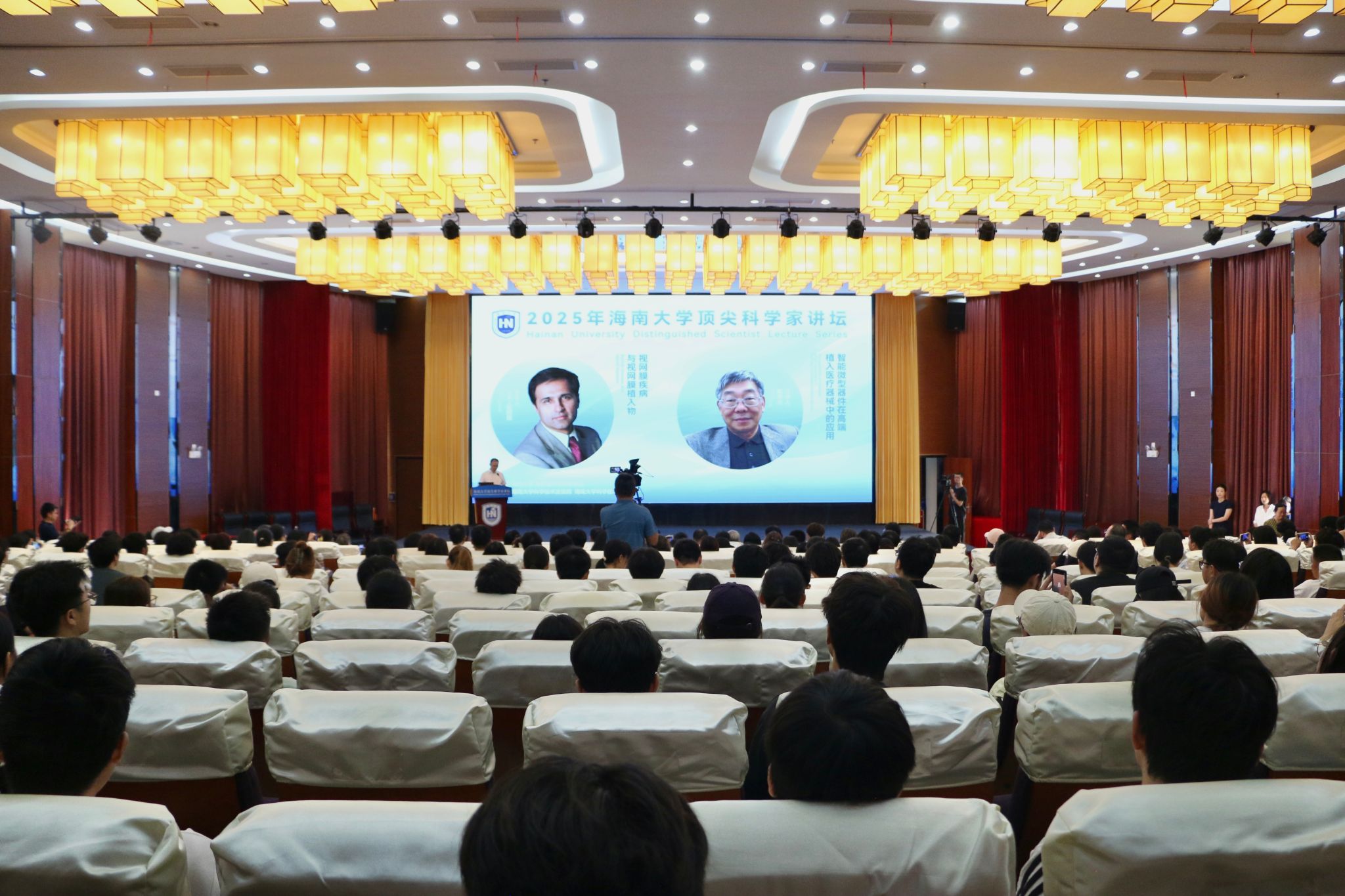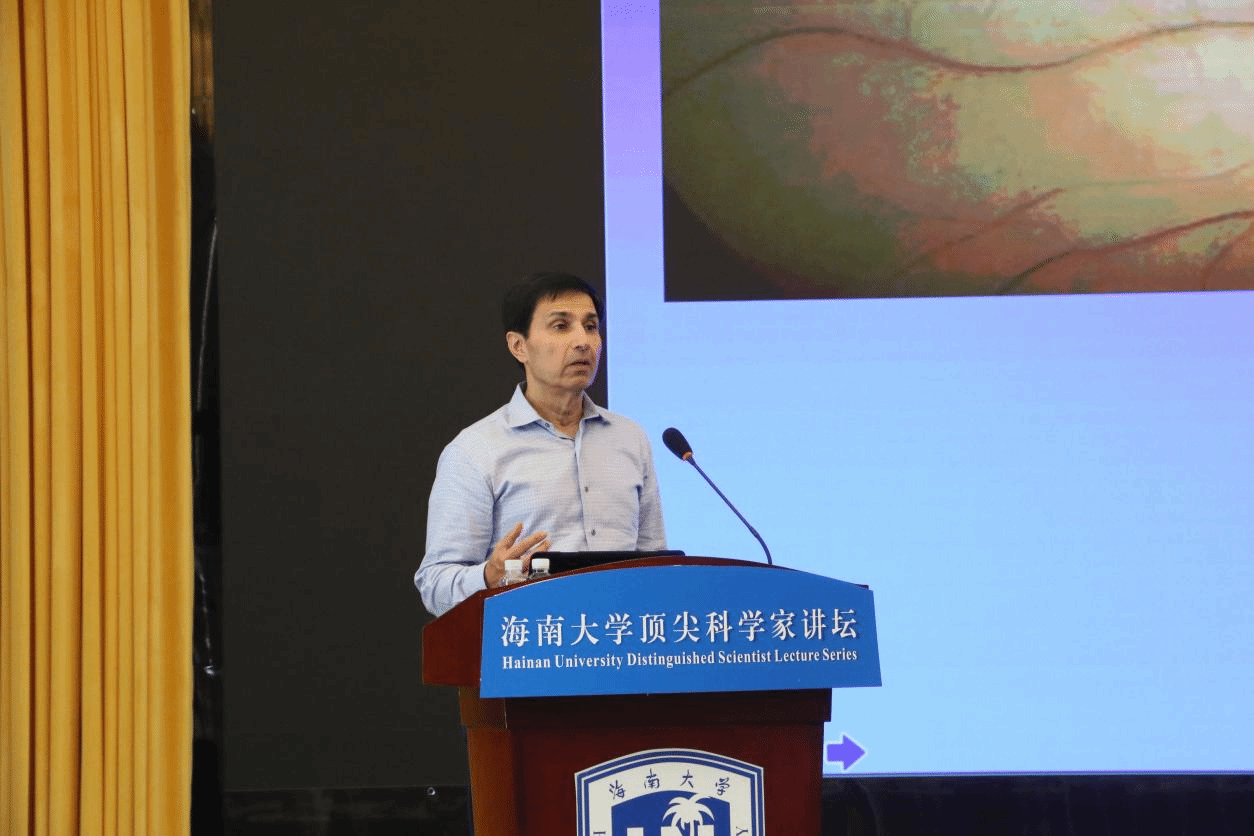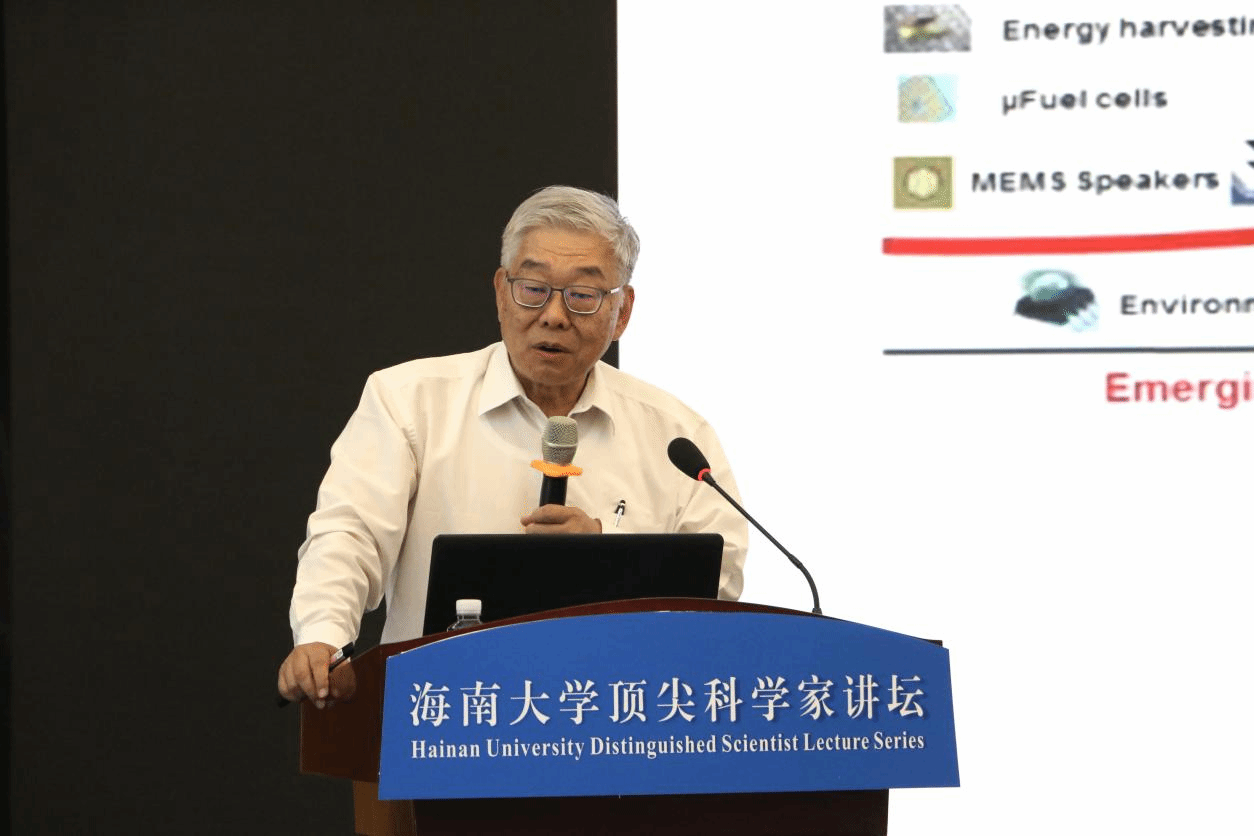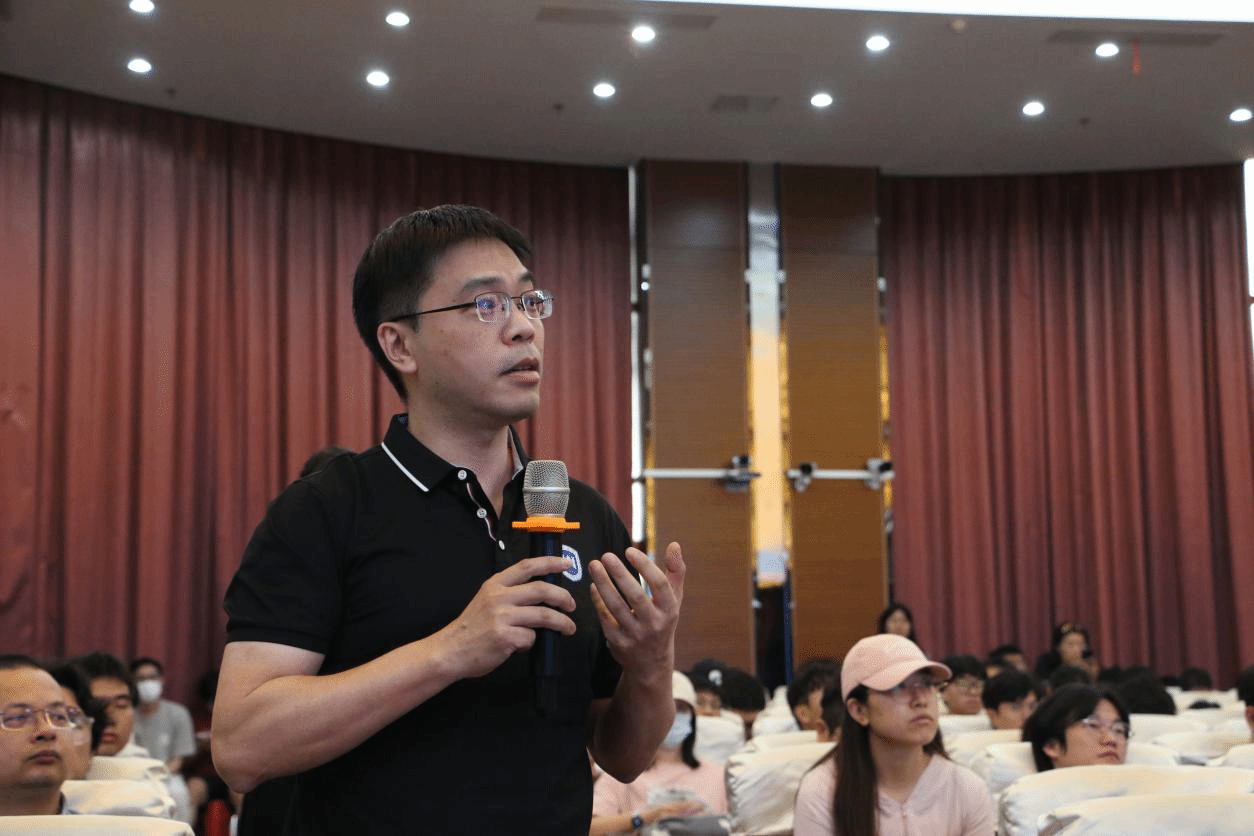On the afternoon of May 25, the 43rd Distinguished Scientist Lecture Series was held at the auditorium of the Social Sciences Complex, Hainan University. Distinguished speakers included Mark Humayun, a member of both the U.S. National Academies of Medicine and Engineering and Yu-Chong Tai, a member of the U.S. National Academy of Engineering and founder of the Medical Engineering Department at California Institute of Technology (Caltech). They delivered keynote speeches titled Retinal Diseases and Retinal Implants and The Applications of Intelligent Micro-components in High-End Implantable Medical Devices , respectively.
The lectures were attended by Luo Qingming, Member of the Chinese Academy of Sciences and President of HNU, along with university leaders: Zhang Jiyou, Gao Diangong, Liu Qian, Li Buhong, Han Shumei, Yang Zhixin. President Luo chaired the event.

Lecture Venue (Photo by Zhang Mengting)
Mark Humayun analyzed the fragility of the human visual system, detailing retinal diseases and therapeutic technologies. He noted that the eye perceives only a tiny fraction of the electromagnetic spectrum. Specifically the macular region is critical for high-acuity tasks (e.g. reading/facial recognition); its damage leads to severe blindness. Given its pivotal role, research must integrate drug therapies, surgical techniques, and technological innovations, to address clinical gaps.

Mark Humayun’s Presentation (Photo by Lin Chunliang)
Yu-Chong Tai elaborated on the application of intelligent micro-components in high-end implantable medical devices, focusing on breakthroughs in disease treatment, technological innovation, and future directions. He emphasized that biocompatible materials and long-term durability are critical for successful implementation. By leveraging interdisciplinary engineering- medical technologies to replace traditional therapies with implantable devices, revolutionary solutions can be provided for visual impairments. Tai further noted that exploring brain-computer interfaces (BCIs) and spinal cord stimulation technology, miniaturizing implants for treating total blindness or paralysis—combined with semiconductor-style mass production—will make implantable devices as affordable and ubiquitous as smartphone sensors.

Yu-Chong Tai’s Presentaton (Photo by Zhang Mengting)
The lectures drew a large audience, with faculty and students actively engaging in discussions on diabetic retinopathy and applications of intelligent micro-components. Both Mark Humayun and Yu-Chong Tai addressed questions from attendees with expertise and patience.
More than 600 participants joined online and offline from Haidian Campus, Danzhou Campus, Mission Hills Campus (including Chengxi Teaching Point) , and Yazhou Bay Science& Education Park. Attendees included representatives from Hainan Association for Science and Technology, MicroIntelli Medical Device Co, Ltd and relevant departments of Hainan University.

Audience Q&A session(Photo by Lin Chunliang)
Translated by Li Weishen
Proofread by Shen Fei